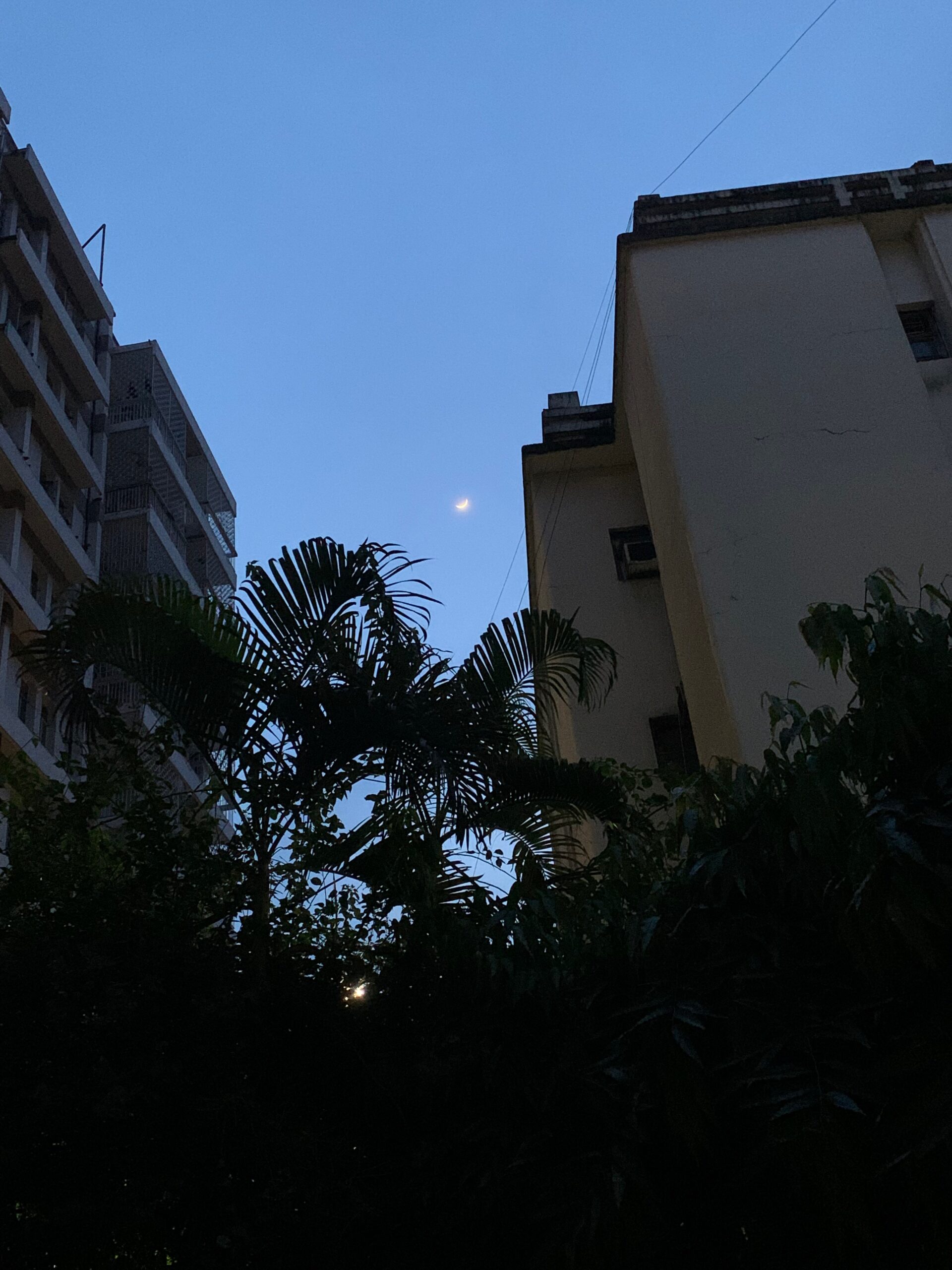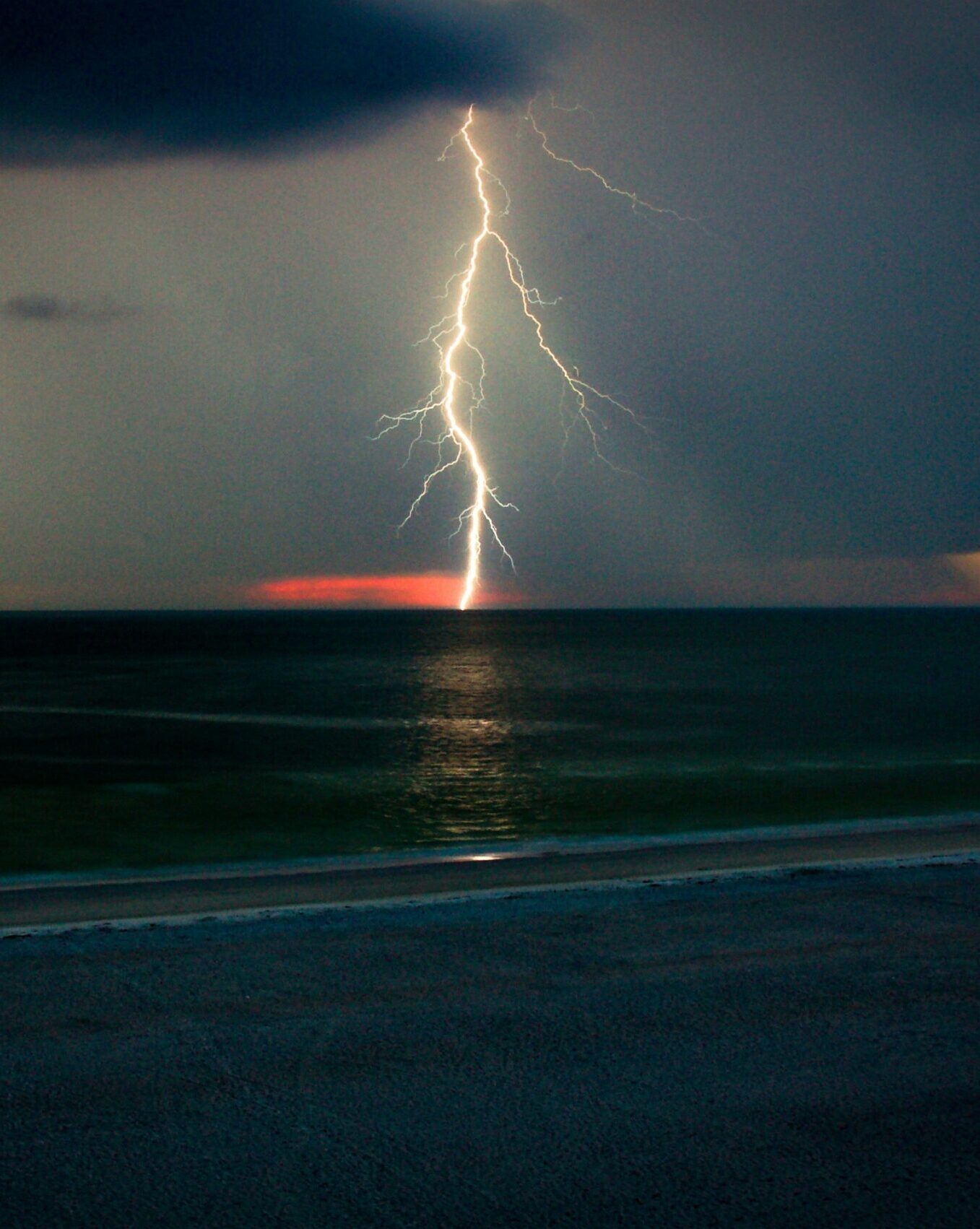By URVI KUMBHAT

Kolkata, India
From my window I see a boy shaking the bougainvillea
for flowers. My parents talk of pruning it. They talk
of little else. The tree, spilling wildly past our house into
the gulley—where boys come to smoke or piss, lanky against
betel-dyed walls—acrid ammonia, posters begging for
votes, pink crowning above them. The boys linger even
when it rains. Each drop caught briefly under
the golden streetlight, and me, holding my breath.
At home, the ceilings betray water’s history
with permanent dark. Ceaseless talk of repainting.
We are a household wary of dampness, always
checking expiry dates on small jars, squinting at
plastic packets cold from the fridge, holding soft foods
up to our noses for proof of life. The house’s exterior
was recently waterproofed, but inside, everything leaks
anyway. The concrete spoils itself with memory.
In the car, we talk about the things a woman can’t do
in this country. Outside, the rain is meager.
The rain comes late, or in excess, or not at all,
every year the city at its mercy. Wet roads gleam
as if under a transparent coat of nail polish.
How bad my mother was at painting my nails—
cherry red, rani pink, plum kiss—how evenly I did hers.
I’ve heard that’s the point. For the child to be better.
When I was born they bathed me in sugar water.
All these years I never knew my parents traveled
all over the world to spark my birth. Airports to hospitals.
How badly they wanted me—though what stays with me
is the fact of their togetherness. The mosquitoes favor me
above everyone else for my blood is sweet, so I paint
my limbs with Odomos. The municipal corporation knocks
on our door to say mosquitoes are breeding in the garden.
The little pond’s deathly stillwater: malaria, dengue.
Now we poison the larvae with kerosene. The government
decides who lives and who dies and pretends otherwise.
To the naked eye, the pond is beautiful. I’m always
pointing the moon’s beauty out to some beloved, pointing
at it with a camera, delighting when the shutter fails.
At home, we stagger our breakfast times and video calls.
A chair is always empty. The sun paints us dark and tender,
though we hide. I play with the soft fuzz of hair on my chin,
then surrender it to the mirror—hours devoted to tearing
follicles from my skin. I’m adrift in July, dedicated to solitude.
I zip back solitude to reveal the self and it hides too.
The issues are all national now. A photoshoot, a meal,
a marriage, the water, all harsh white noise of TV debates.
Like chewing gum, made to expel, sticky. The shorn limbs
of trees block the driveway, so we stay home, listening
to the news. We cut into custard apples. As a girl
I imagined its husk as a crocodile’s skin, thrilled
in taking it apart. I eat white flesh, spit black seed.
Pearlescent blue sky, shining from within. Ma and I walk
in the park before dusk. She points out all the trees that
have fallen since I was last here—bare stumps wedged
into earth like gravestones. The pond besieged by lovers
turned away from the world, their thighs touching.
Lipstick, leaves, animal droppings, the street’s busy blast,
dyeing the atmosphere pink and black and green.
A rat scurries by the couples, each in their own gestures
of retreat. They access such sacred privacy in the public park.
I’d tried it once, and failed. So much to pull one away—
the stench from the bathroom, wings buzzing by cones of light,
the walkers, watching, love in public a national issue—
every kind of love up for debate, sutured into the law,
as if desire could be legislated, scrubbed clean, imprisoned.
But the rat, he goes quietly. He welcomes them home.
Urvi Kumbhat earned an MFA from the Helen Zell Writers’ Program, where she is currently a Zell Fellow. Her work appears in The Margins, Apogee, Poet Lore, Lit Hub, Cherry Tree, and other publications. She grew up in Calcutta.
Photo by the author.




